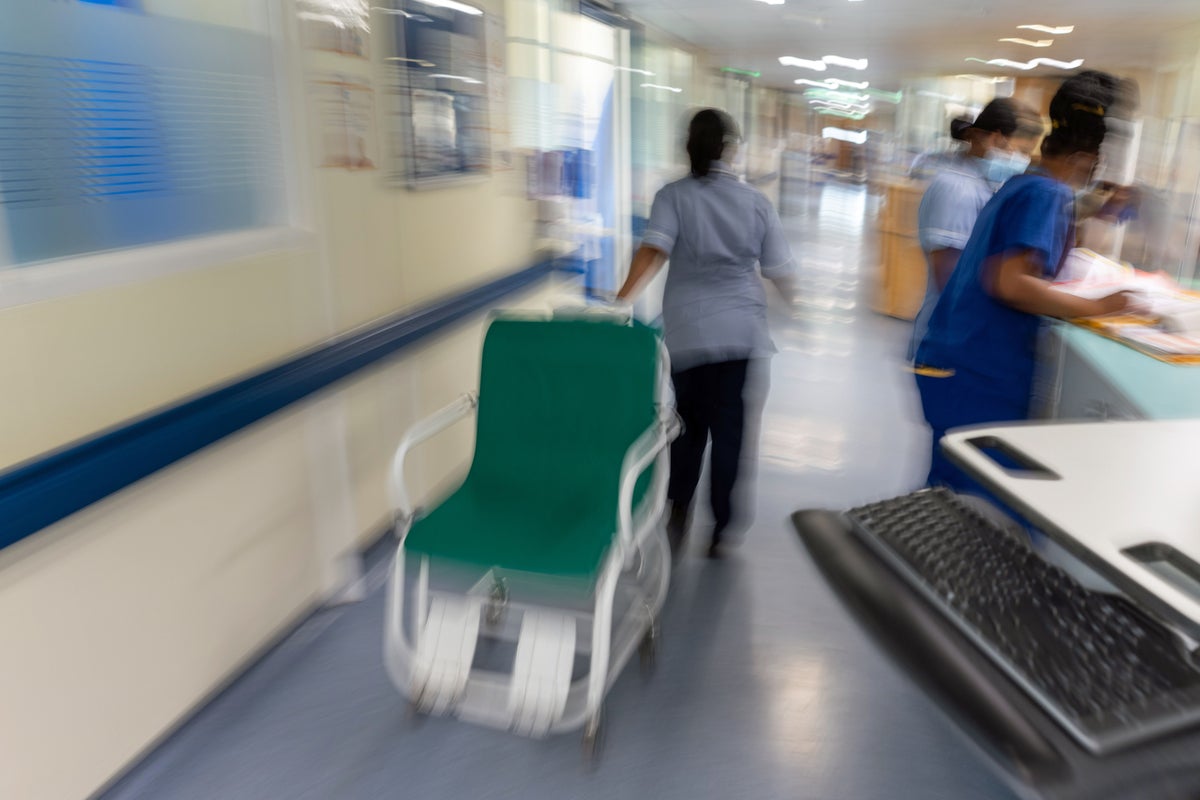
There is a “culture of cover-up” in the NHS and “ingrained defensiveness” when it comes to patients being harmed or suffering avoidable death, the health ombudsman said as he published a damning new report.
Rob Behrens, health service ombudsman for England, pointed to the “gaping hole” between policies aimed at improving patient safety and real-life experience on the ground, with hospitals “routinely” failing to accept their errors.
In a new study, his office pointed to “continued failures to accept mistakes” and the failure of some NHS trusts to “take accountability” for turning lessons into action.
The report found the physical harm patients suffer following mistakes is often “made worse” by “inadequate, defensive and insensitive responses” from NHS trusts, with some delaying their replies for months and years.
He told a briefing: “There is a culture of cover-up – there is no point pretending that everybody is nice and does the right thing.
“Because on the basis of the evidence that I see, patients have been lied to, their care plans have been altered after they died, and there are a whole series of incidents where people do not know what went on and hospitals are reluctant to disclose this.
“You can call it what you like but it is a cover-up.”
He said such cover-ups of mistakes must be challenged and accountability “has to be at all levels”, adding “the minister has to be accountable and NHS England has to be accountable”.
He went on: “I’m having conversations with NHS England where they say ‘we don’t recognise the term avoidable harm, avoidable death, it’s not helpful’. Well excuse me, I think that is a nonsense and it has to be challenged.”
Mr Behrens’s team examined a snapshot of 22 cases of avoidable death and concluded there were four main direct causes of harm – failure of staff to make the right diagnosis, delays in giving treatment, poor communication and handover between NHS staff, and a failure to listen to the concerns of patients or their families.
The team found further harm is caused to patients and families when NHS trusts carry out poor quality investigations or no investigation at all, fail to learn, offer “inadequate” apologies, and take months and years to respond to complaints.
For most of the deaths investigated by the ombudsman, the trust involved had not even conducted a serious incident investigation.
One of the biggest threats to saving lives is a healthcare system at breaking point— Rob Behrens
In one clear case of a cover-up, the report said the NHS trust “did not disclose” that different assessors had given contradictory opinions on whether a delay to an operation had resulted in avoidable harm, and then did not tell the family.
In another case, a baby boy died when antibiotics were not given quickly enough and “important details” about what had happened were not given to his parents by University Hospitals Bristol and Weston NHS Foundation Trust for seven weeks.
“Staff even discussed deleting a recording made during a meeting when the parents temporarily stepped out of the room, because they realised what they had said might get the trust into difficulty,” the report said.
NHS figures suggest there are an estimated 11,000 avoidable deaths every year due to patient safety failings – though this is widely regarded as an underestimate – while thousands more patients are seriously harmed.
Cases described within the report include that of Christopher Walmsley, 44, who attended Bradford Teaching Hospitals NHS Foundation Trust but staff failed to identify he had a pulmonary embolism (a clot in the lungs).
Instead, he was diagnosed with pneumonia.
The trust’s own investigation did not find that failures in his care led to his death, however the ombudsman found his death could have been avoided.
His mother Patricia said: “He died in his bedroom and I had to hear it. My grandson was in the room next door with me and he heard it too.”
In another case, a patient was not monitored enough and he was not diagnosed with sepsis.
In another case, a patient in a mental health trust died there from suicide after staff failed to properly assess her risk.
Further cases included a woman who died needlessly after staff did not administer urgent medication for 27 hours despite having got her diagnosis right, and another who died of sepsis despite staff thinking it was “unlikely” they had it and not giving antibiotics.
The report also pointed out how some NHS trusts use the fact a patient has several health conditions to “minimise the impact of any failings or omissions”.
One member of a patient’s family said the trust in their case finally accepted they had made a mistake “but they weren’t sorry they’d done it, they were sorry they’d been caught”.
In a foreword to the report, Mr Behrens called for the Government to give leaders the tools to prioritise the safety of patients and to hold them accountable for doing so.
He added: “We need to see significant improvements in culture and leadership.
“However, the NHS itself can only go so far in improving patient safety. One of the biggest threats to saving lives is a healthcare system at breaking point.
“The Government says patient safety is a priority but if it means this, the NHS must be given the workforce capacity it needs.
“We need to see concerted and sustained action from Government to support NHS leaders to prioritise the safety of patients. Patient safety must be at the very top of the agenda.”







